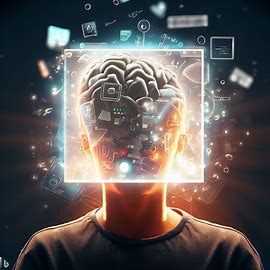In the realm of science fiction, the concept of mind-reading technology has intrigued and fascinated curious minds for decades. The mere thought of unlocking the deepest recesses of one’s thoughts and emotions has sparked a myriad of ethical and philosophical questions that are about to be answered since AI can now read minds.
As the boundaries between science fiction and reality blur, it is crucial to confront the potential dangers and societal ramifications that such technology could bring.
While mind-reading technology holds promises of enhanced communication and understanding, it also raises concerns that echo the dystopian world depicted in the film “Minority Report,” where individuals are convicted not for crimes committed but for those they are predicted to commit.
As technology continues its relentless advance, the prospect of mind reading becoming a tangible reality is no longer confined to the pages of novels or the silver screen.
With the development of sophisticated brain-computer interfaces and neuroimaging techniques, scientists are inching closer to unlocking the secrets of the human mind. While this holds tremendous potential for medical breakthroughs and understanding cognitive processes, the ethical implications of using such technology for law enforcement and predicting future criminal behavior are deeply troubling.
In the iconic movie “Minority Report,” directed by Steven Spielberg and based on Philip K. Dick’s story, a futuristic society employs a group of precognitive individuals known as “pre-cogs” to predict and prevent crimes before they occur. This dystopian vision raises profound questions about the nature of free will, privacy, and the presumption of innocence. Similarly, the advent of mind reading technology in our world could pave the way for a society where individuals are judged not for their actions but for their perceived intentions—essentially penalizing them for crimes they have not yet committed.
The potential for abuse and misuse of mind-reading technology is staggering. Imagine a scenario where an individual is wrongfully convicted solely based on their thoughts or emotions, which have been extracted without their consent.
The very notion of privacy and mental autonomy is compromised, eroding the fundamental principles upon which our justice system is built. Furthermore, such technology could disproportionately impact marginalized communities, perpetuating existing biases and reinforcing societal inequalities.
Critics argue that relying on mind-reading technology as a basis for criminal conviction undermines the core principles of our legal system, such as the presumption of innocence and the burden of proof.
The subjective interpretation of an individual’s thoughts and emotions, devoid of context, could lead to flawed judgments and irreversible consequences. A future where mind-reading technology is prevalent may result in a chilling effect on freedom of thought and expression, as individuals become hesitant to share their innermost feelings, fearing potential misinterpretation or wrongful incrimination.
As we grapple with the ethical implications of mind-reading technology, it is imperative to engage in a thoughtful and robust dialogue. We must ensure that advancements in neuroscience and related fields are guided by strong ethical frameworks and safeguards that protect individual rights and prevent the erosion of our societal values.
While the allure of mind-reading technology may captivate our imagination, we must remain vigilant and cautious lest we unwittingly plunge ourselves into a reality that mirrors the darkest elements of science fiction. That’s why I write to anyone out there reading this: wake up and speak against these new frightening technologies, or you might just end up in prison for having a ‘bad thought’.



Leave a Reply